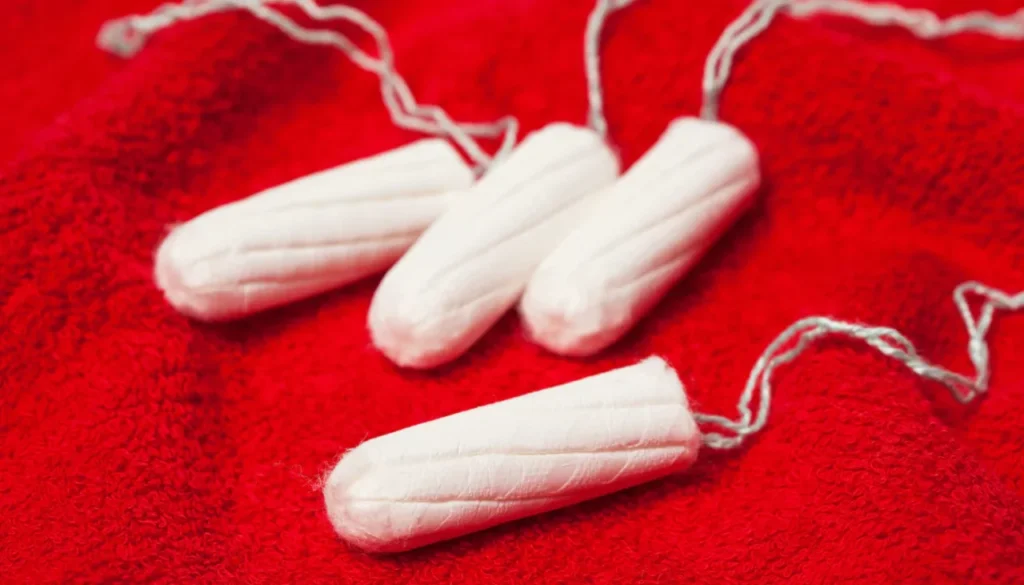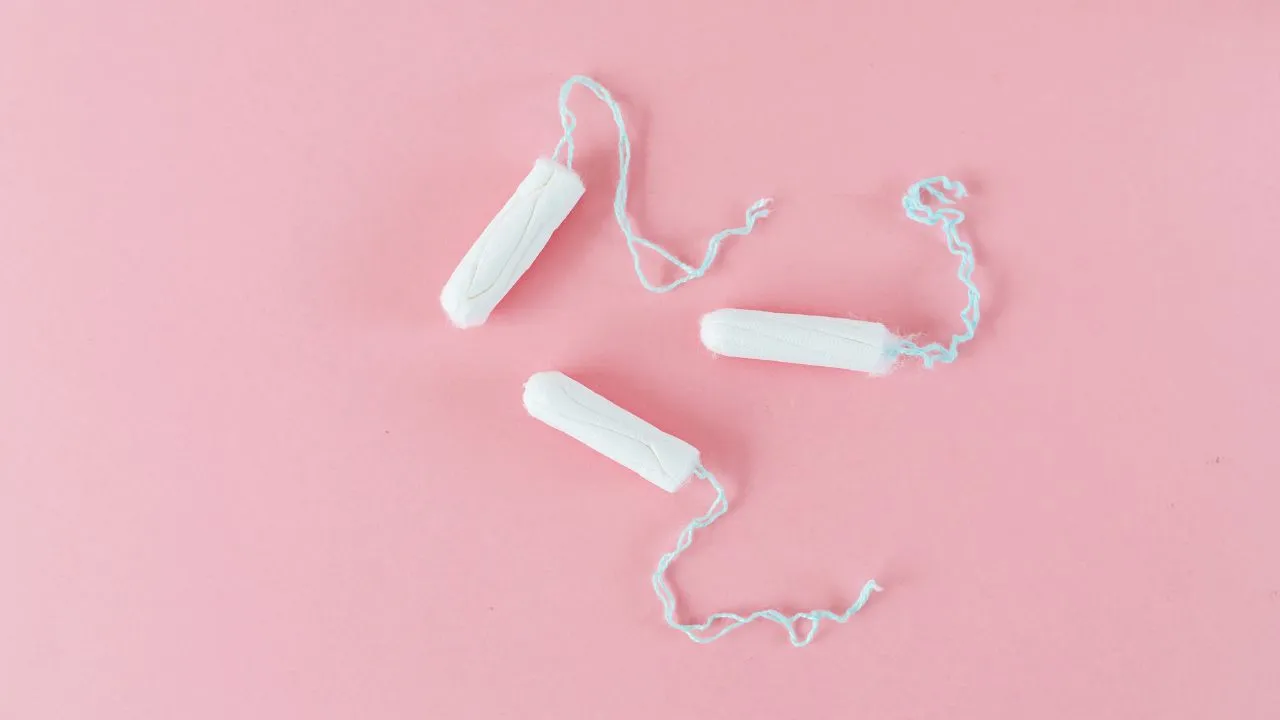Freezing tampons may prevent infections, toxic shock syndrome, cystitis, and vaginal dryness. Some women say this kills bacteria in the menstrual fluid and numbs the vagina to ease pain and irritation.
But others disagree and say this practice harms the tampon. It makes it dry and less absorbent. It also weakens it and increases the risk of it falling apart or leaving fibers behind. They recommend keeping tampons in a cool, dry place and looking for any mold or discoloration before using them.
In this article, we will explain why freezing your tampons can make your period more comfortable, reduce the risk of toxic shock syndrome (TSS), and improve your hygiene and freshness.
We will also tell you how to freeze your tampons properly and safely and debunk some myths and misconceptions about this practice.
The Benefits of Freezing Tampons

Freezing your tampons can have several advantages for your health and comfort during your period. Here are some of them:
- Reduced discomfort during insertion: Some women experience pain or irritation when inserting a tampon, especially if they have a dry or sensitive vagina. A frozen tampon can help lubricate and soothe the vaginal walls, making the insertion easier and less painful.
- Reduced risk of TSS: TSS is a rare but serious infection that can occur when bacteria enter the bloodstream through a wound or a mucous membrane. Tampons can create an ideal environment for bacteria to grow, especially if they are left in for too long or are not changed frequently enough. A frozen tampon can prevent bacteria from multiplying by lowering the temperature and pH of the menstrual fluid, thus reducing the chances of developing TSS.
- Enhanced freshness and hygiene: A frozen tampon can also keep your vagina feeling fresh and clean during your period. A frozen tampon can absorb menstrual fluid more effectively, preventing leaks and odors. It can also create a cooling and refreshing sensation that can relieve cramps, inflammation, and itching.
How Do Freezing Tampons Work?
You may be wondering how freezing your tampons can achieve these benefits. Here is the science behind it:
- Freezing the pH of menstrual fluid: The pH of menstrual fluid is usually between 7.4 and 7.8, which is slightly alkaline. This can create a favorable condition for bacteria to grow and cause infections. Freezing your tampons can lower the pH of the menstrual fluid to around 4.5, which is more acidic and inhibits bacterial growth.
- Stopping bacteria growth: Bacteria thrive in warm and moist environments, such as inside a tampon. Freezing your tampons can stop bacteria from multiplying by reducing the temperature and moisture level of the tampon. This can prevent bacterial overgrowth and reduce the risk of TSS and other infections.
- Creating a cooling and refreshing sensation: Freezing your tampons can also provide a soothing effect on your vagina during your period. A frozen tampon can cool down the blood vessels and nerves in the vaginal area, reducing inflammation, cramps, and pain. It can also stimulate the nerve endings in the clitoris, enhancing pleasure and arousal.
Proper Usage and Safety Concerns
While freezing your tampons can have many benefits, it is important to use them correctly and safely to avoid any potential problems. Here are some tips to follow:
- Using clean and sterile tampons: Before freezing your tampons, make sure they are clean and sterile. Use only unopened packages of tampons that have not expired or have been damaged. Do not use homemade or reusable tampons that may contain harmful chemicals or bacteria.
- Avoid extended freezing times: Do not freeze your tampons for too long or too often. Freezing your tampons for more than a few hours or days can affect their quality and effectiveness. It can also cause freezer burn or ice crystals to form on the surface of the tampon, which can damage the fibers or irritate the vagina.
- Addressing potential health risks: Freezing your tampons is generally safe for most women, but it may not be suitable for everyone. Some women may have allergies or sensitivities to cold temperatures or certain materials in the tampon. Some women may also have medical conditions that affect their blood circulation or vaginal health, such as diabetes, Raynaud’s syndrome, or vaginitis. If you have any doubts or concerns about freezing your tampons, consult your doctor before trying it.
Debunking Myths About Freezing Tampons
There are some myths and misconceptions about freezing your tampons that may deter some women from trying it. Here are some facts to clear them up:
- The safety and effectiveness of freezing tampons: Some people may think that freezing your tampons will make them less safe or effective than regular ones. This is not true. Freezing your tampons will not affect their ability to absorb menstrual fluid or prevent pregnancy or sexually transmitted infections (STIs). Freezing your tampons will also not cause any harm to your vagina or uterus, as long as you use them properly and safely.
- Dispelling concerns about infertility: Some people may worry that freezing their tampons will affect their fertility or cause infertility. This is also not true. Freezing your tampons will not interfere with your ovulation, menstruation, or conception. Freezing your tampons will also not damage your eggs, sperm, or embryos, or cause any birth defects or miscarriages.
- The cost-effectiveness and environmental benefits of freezing tampons: Some people may think that freezing your tampons will cost more money or waste more energy than using regular ones. This is also not true. Freezing your tampons will not increase your electricity bill or consume more resources than using regular ones. Freezing your tampons will also not create more waste or pollution than using regular ones, as long as you dispose of them properly and responsibly.
Conclusion
Freezing your tampons can be a simple and effective way to improve your comfort, health, and hygiene during your period. It can reduce discomfort during insertion, reduce the risk of TSS, and enhance freshness and hygiene.
It can also create a cooling and refreshing sensation that can relieve cramps, inflammation, and itching. Freezing your tampons is safe and easy to do, as long as you use clean and sterile tampons, avoid extended freezing times, and address any potential health risks.
Freezing your tampons is also not harmful to your fertility or the environment, and it does not affect the safety or effectiveness of your tampons. If you are curious about freezing your tampons, give it a try and see how it works for you.


